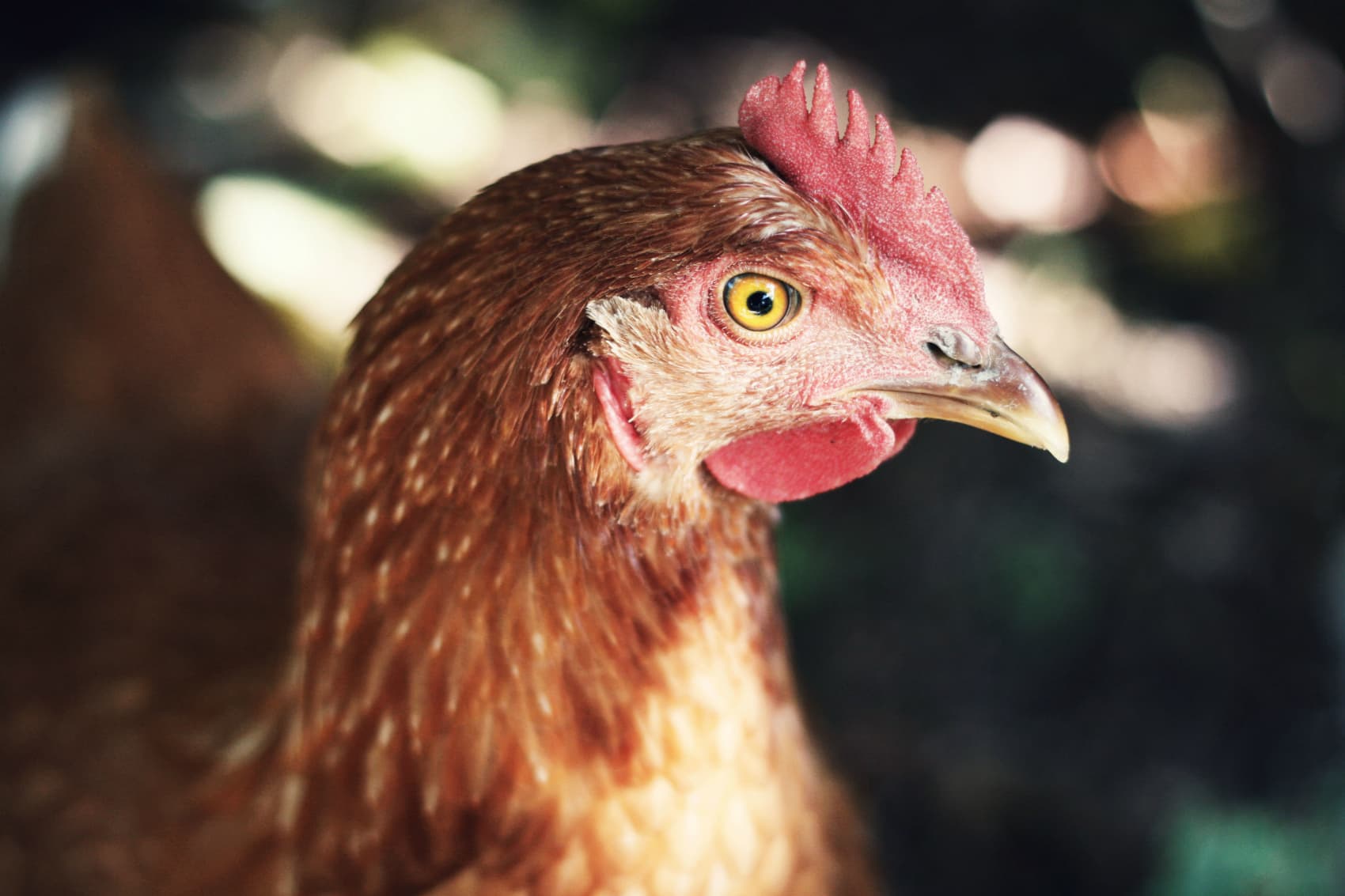Advertisement
Will Massachusetts Ballot Question Remove The Cruelty From Farming?

A lot of people are squawking about what they consider a fowl plot from the Humane Society. If the do-gooders get their way, they say, eggs will no longer be cheep, cheep, cheep. But on close examination, the worries aren’t all they’re cracked up to be.
At issue is Question 3, coming to your ballot this November. Titled “An Act to Prevent Cruelty to Farm Animals,” the measure would require that eggs, pork and veal sold in Massachusetts come from chickens and livestock that have not been “confined in a cruel manner.” And who, truly, can object to that? Most of us, I imagine, feel some remorse as we tuck into a pork roast or crack an egg, wondering about the lives that led to our meals. A measure such as this, ensuring the animals that sustain us lead moderately decent lives seems the least we could do.
One big objection is that the new law will push prices up. Right now, the average cost of a dozen regular eggs is $1.29; cage free run $2.99. It’s more, yes, but that’s still only a quarter for a cage-free egg – an amazing deal, especially if one considers we blithely drop $2.00 for a large coffee at Dunkin’s. And there’s good reason to believe that, should cage-free eggs become more popular, the price differential will narrow considerably.
It turns out that – with one exception – all of the Bay State’s farms and egg-laying operations are already cruelty- and cage-free.
Price isn’t the real problem with Question 3. The real problem is it won’t do much to make things better.
It turns out that – with one, solitary exception – all of the Bay State’s farms and egg-laying operations are already cruelty- and cage-free. That exception is Diemand Farm, way out in Wendell, about 90 miles west of Boston. At issue: About 3,000 chickens. The owners of Diemand defend their practices, by the way, arguing that free-roaming egg-layers can get into fights that leave them injured or dead. Be that as it may, I’m guessing the largely non-agrarian populace of Massachusetts won’t care a whit. Once the law passes, Diemand will eventually be forced to change its ways.
It does seem odd, though, that we are using a state-wide referendum to change the practices of one small family farm. For all of the money put into this measure, wouldn’t it have been simpler for advocates to give farm owner Peter Diemand the couple hundred thousand dollars he figures it would cost to comply?
Ah, but this little referendum of ours is about more than what happens within our borders; rather, its ambitions are nationwide. According to the proposed law, if anyone --- anyone! – wants to sell pork, veal and eggs in the Commonwealth, they too must be cruelty-free. That includes pork giants such as Missouri’s Triumph Foods, major veal producers such as Strauss in Wisconsin, and the big hen-laying operations of Iowa. (Number of laying-hens in Iowa? 48.7 million. Compare that to Peter Diemand’s 3,000.)
Advertisement
Pretty clever, eh? One small state upends farming as we know it.
Except we won’t. The Massachusetts referendum, if passed into law, would probably violate the US Constitution.
The reason is the so-called “Commerce Clause,” which makes regulation of trade among the states a federal responsibility. Individual states such as Massachusetts can’t tell businesses in other states how to run their operations, nor can we refuse to allow them to sell goods here if they don’t do what we say.
Thus, for example, we couldn’t enforce a law requiring items sold in the Bay State must be produced by companies paying workers a minimum hourly wage of $15. Nor could we tell companies from the other 49 states that they can’t do business here unless, say, 50 percent of the members of their boards of directors were women.
Both worthy goals. But both would have to be accomplished by a vote of Congress.
According to the proposed law, if anyone wants to sell pork, veal and eggs in the Commonwealth, they, too, must be cruelty-free.
It’s easy to see how allowing states to make up their own rules for trade could quickly devolve into protectionism and trade wars. Indeed, the anti-cruelty referendum itself smacks of that, giving Massachusetts pork, veal and egg producers (with the exception of Peter Diemand, of course) a lock on the market should firms from outside the state be unwilling to change.
If we pass the law, here’s a safe bet: The big meat and egg producers will challenge it and they’ll win.
So does that mean that, despite Question 3, animals across the country will continue to be treated cruelly? Actually, not. As often happens in cases such as these, public pressure, consumer demand and strenuous advocacy are already forcing change. Walmart and McDonald’s, for instance, have vowed that all of their eggs will be cage free by 2025. Strauss, the veal producer, no longer uses the pens decried by animal rights activists. The success or failure of Proposition 3 notwithstanding, our chickens will soon be running free anyway – a case, if you will, of poultry in motion.
